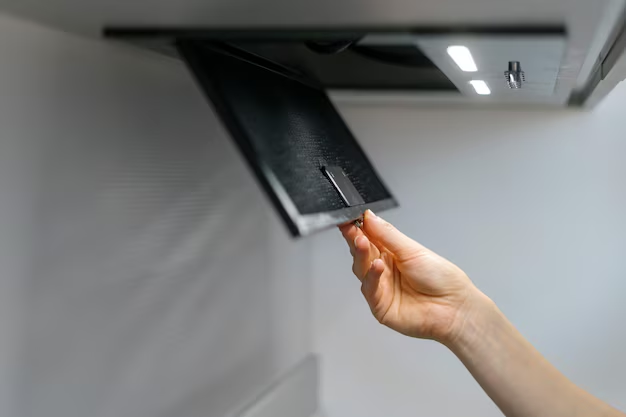Your Guide to The Best Energy-Efficient Appliances For Your Home
What You Get:
Free Guide
Free, helpful information about Green & Sustainable Housing and related The Best Energy-Efficient Appliances For Your Home topics.
Helpful Information
Get clear and easy-to-understand details about The Best Energy-Efficient Appliances For Your Home topics and resources.
Personalized Offers
Answer a few optional questions to receive offers or information related to Green & Sustainable Housing. The survey is optional and not required to access your free guide.
Discover the Top Energy-Saving Appliances for Your Home
In today's world of rising utility costs and growing environmental concerns, it's more important than ever to invest in energy-efficient appliances for your home. Not only do these appliances help reduce your carbon footprint, but they also lower your monthly utility bills, offering both environmental and economic benefits. Let’s explore some of the best energy-efficient appliances that can transform your home into a model of sustainability.
Refrigerators
Refrigerators are one of the largest energy consumers in any household. Modern energy-efficient models use substantially less electricity compared to older versions. Look for refrigerators with the ENERGY STAR® label, as these models are designed to save up to 15% more energy. French door styles with bottom freezers tend to be the most efficient, optimizing space and cooling.
Washing Machines
When it comes to washing machines, front-loaders generally offer better energy efficiency and use less water than traditional top-loaders. Many ENERGY STAR® certified washing machines use around 25% less energy and 33% less water than standard models. Choosing a model with adjustable water temperature settings can further enhance efficiency.
Dishwashers
Innovative dishwashers today are remarkably efficient, using around half the energy of older units. ENERGY STAR® dishwashers not only consume less energy but also utilize less water, often with the capability to heat water internally, making them a smart choice for chores.
Water Heaters
One of the most impactful changes you can make is upgrading to an energy-efficient water heater. Tankless water heaters, also known as on-demand water heaters, heat water only when needed. This avoids the energy losses associated with maintaining a tank's temperature. For another eco-friendly option, consider heat pump water heaters, which can be two to three times more energy-efficient than conventional heaters.
Ovens and Stoves
When choosing cooking appliances, induction cooktops are known for their precision and energy savings. They cook food faster than traditional electric or gas stoves and generate less residual heat, which means your kitchen stays cooler, saving on air conditioning costs.
HVAC Systems
Heating, ventilation, and air conditioning (HVAC) systems are among the largest energy users at home. Efficient models, especially those with the ENERGY STAR® certification, can drastically cut energy use. Programmable or smart thermostats also add to savings by optimizing heating and cooling schedules based on your lifestyle and needs.
Investing in energy-efficient appliances does more than just save money; it paves the way for a more sustainable future. Many of these advanced technologies also qualify for government rebates and incentives, easing the initial costs of these investments. Additionally, several utility companies offer financing or rebate programs for purchasing energy-efficient appliances.
Explore Financial and Educational Opportunities
If the cost of upgrading your appliances seems daunting, consider these financial assistance options and resources that can help offset expenses:
- 💡 Energy-Efficient Appliance Rebates: Check with local and national programs offering rebates for ENERGY STAR® appliances.
- 🏡 Weatherization Assistance Program (WAP): Provides grants to upgrade homes for energy efficiency, available to low-income households.
- 💰 Federal Energy Tax Credits: Credits are often available for investments in energy-efficient home improvements.
- 📚 Homeownership Education Classes: Gain insight into managing upfront costs and long-term savings from improved home efficiency.
- 💳 Low-Interest Credit Solutions: Many financial institutions offer tailored credit options for incorporating green technologies at home.
Being informed about these options not only makes transitioning to efficient appliances feasible but also supports broader financial well-being. Embrace an energy-conscious lifestyle today and watch as the benefits accumulate over the years!
What You Get:
Free Green & Sustainable Housing Guide
Free, helpful information about The Best Energy-Efficient Appliances For Your Home and related resources.

Helpful Information
Get clear, easy-to-understand details about The Best Energy-Efficient Appliances For Your Home topics.

Optional Personalized Offers
Answer a few optional questions to see offers or information related to Green & Sustainable Housing. Participation is not required to get your free guide.


Discover More
- Can Green Homes Save You Money? A Cost-Benefit Analysis
- Green Building Certifications: What You Need To Know
- Green Insulation Options For Sustainable Homes
- How To Build a LEED-Certified Home
- How To Build An Eco-Friendly Tiny Home
- How To Choose Sustainable Materials For Home Renovations
- How To Create a Rainwater Harvesting System For Your Home
- How To Create a Sustainable Garden In Your Yard
- How To Find a Green Home Builder
- How To Get Government Incentives For Green Home Improvements
